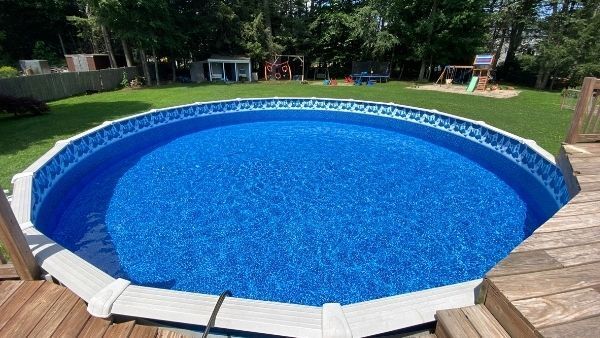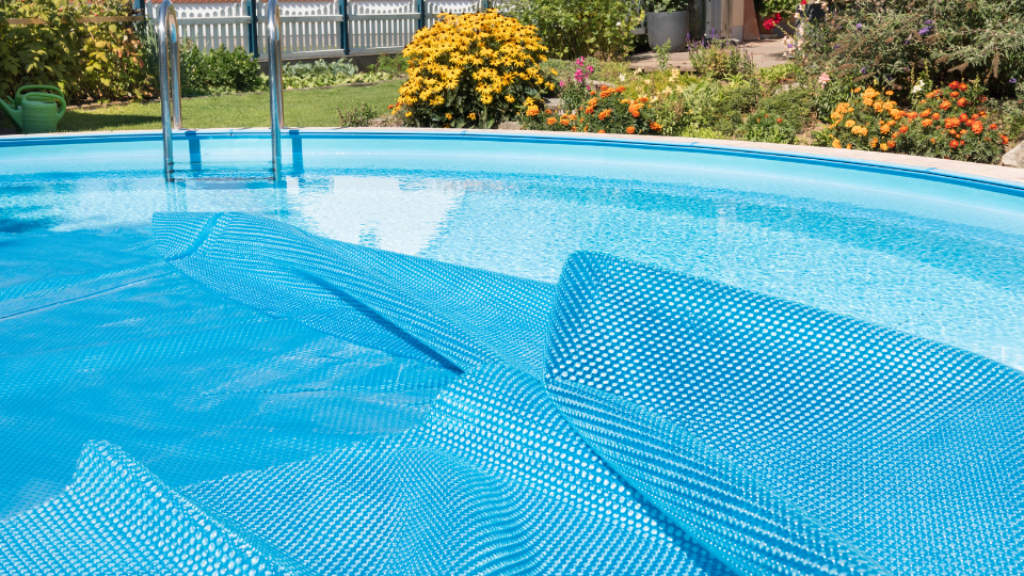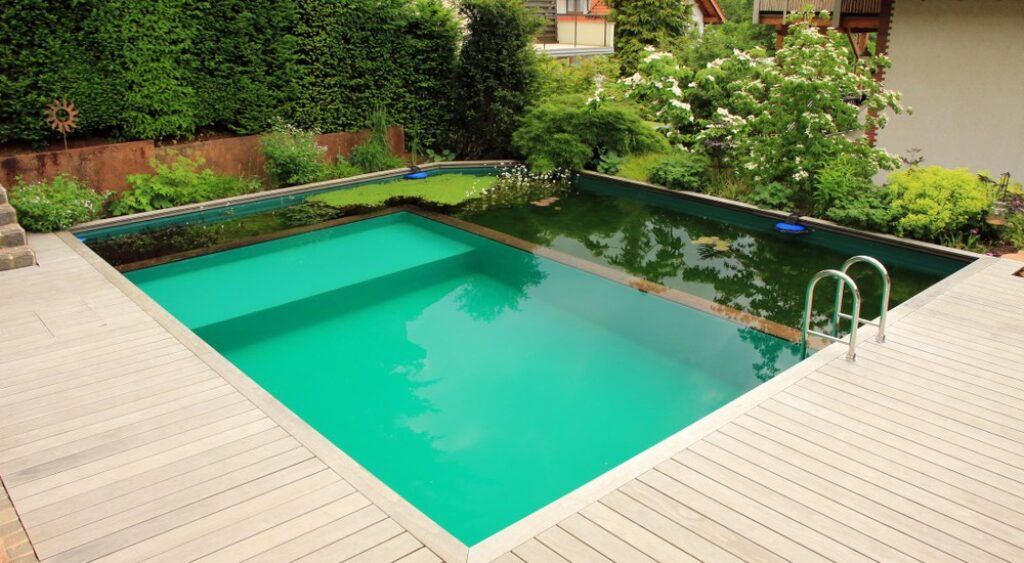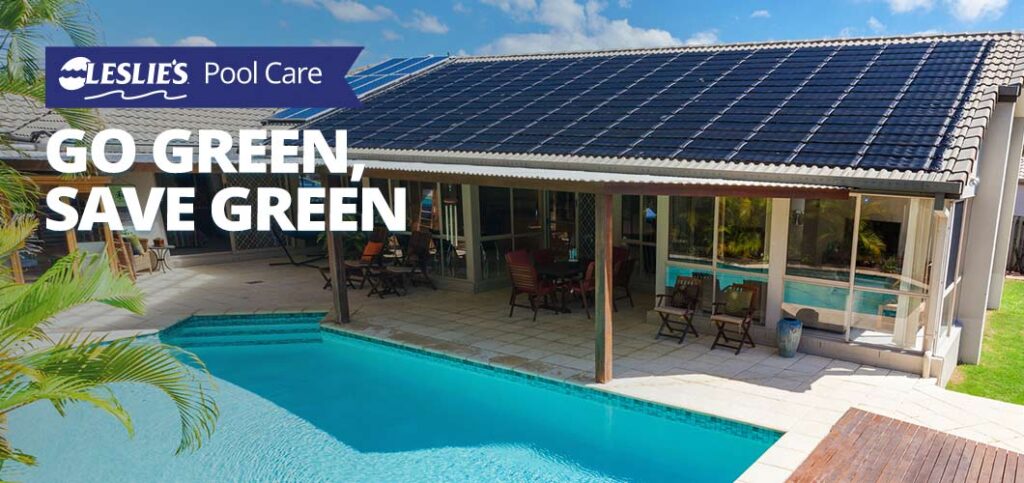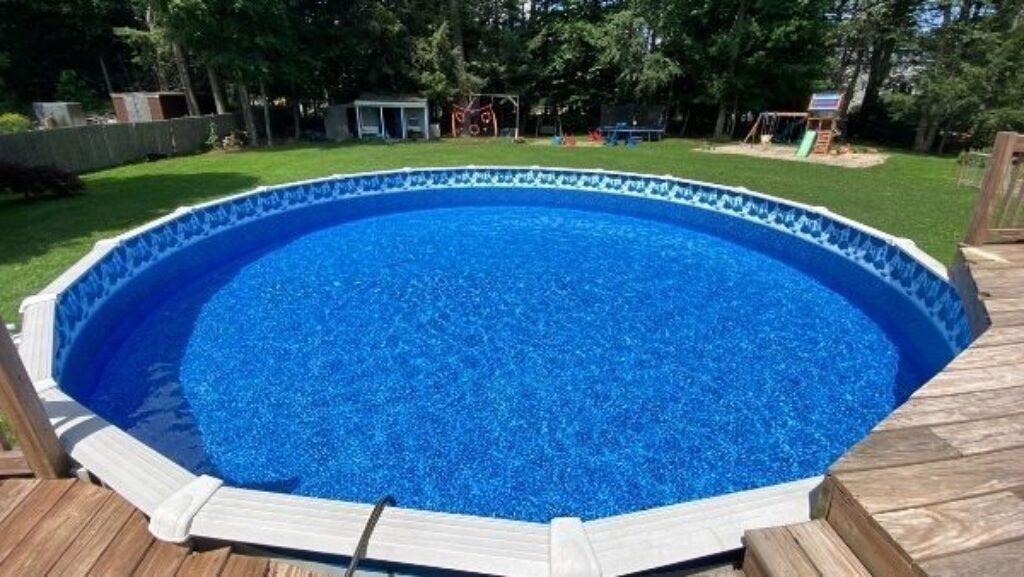In “Going Green: Eco-Friendly Practices For Your Above Ground Pool,” discover simple and effective ways to make your pool more environmentally friendly. From reducing water and energy consumption to using eco-friendly chemicals, this article provides practical tips that will not only save you money but also contribute towards a greener future. With these eco-conscious practices, you can enjoy your above ground pool guilt-free, knowing that you are taking steps to minimize its impact on the environment.
This image is property of lirp.cdn-website.com.
1. Energy-efficient pool equipment
When it comes to maintaining an eco-friendly above ground pool, investing in energy-efficient pool equipment is a great place to start. By making simple changes to the technology you use to run your pool, you can significantly reduce your energy consumption and minimize your environmental impact.
1.1 Variable-speed pumps
One of the most effective ways to make your pool more energy-efficient is by installing a variable-speed pump. Unlike traditional single-speed pumps that run at a constant speed, variable-speed pumps allow you to adjust the flow rate to match your pool’s needs. This means that you can run the pump at lower speeds when less circulation is required, saving a significant amount of energy.
1.2 LED pool lights
Another energy-efficient option for your above ground pool is LED pool lights. Compared to traditional incandescent lights, LED lights consume significantly less energy while still providing bright and vibrant illumination. LED lights also have a longer lifespan, reducing the need for frequent bulb replacements and further contributing to energy conservation.
1.3 Energy-efficient pool heaters
If you use a pool heater to maintain a comfortable water temperature, consider switching to an energy-efficient model. Energy-efficient pool heaters utilize advanced technologies, such as heat pumps or solar power, to heat your pool water more efficiently. These heaters are designed to consume less energy while still providing effective heating, reducing both your energy costs and environmental impact.
2. Solar-powered options
Harnessing the power of the sun is an excellent way to make your above ground pool more sustainable. Solar-powered options not only help you reduce your reliance on traditional energy sources but also provide a cost-effective alternative.
2.1 Solar pool covers
One of the most straightforward solar-powered options is a solar pool cover. These covers are made of special materials that absorb and trap the sun’s heat, gradually warming your pool water. By using a solar pool cover, you can significantly reduce heat loss and evaporation, which would otherwise contribute to increased energy consumption and water loss.
2.2 Solar pool heaters
For those looking for a more robust solar-powered heating solution, solar pool heaters are an excellent choice. These systems use solar panels to capture sunlight, convert it into heat, and transfer that heat to your pool water. Solar pool heaters can be installed on the roof or the ground near your pool, taking advantage of the abundant sunlight to warm your pool water naturally.
2.3 Solar-powered pool cleaners
Cleaning your pool is a necessary maintenance task, but it doesn’t have to be energy-intensive. Solar-powered pool cleaners are a sustainable alternative to traditional cleaners that rely on electricity. These cleaners use solar technology to generate the power they need to run, eliminating the need for electricity and reducing your carbon footprint. Solar-powered cleaners are not only eco-friendly but also efficient and effective in keeping your pool clean and clear.
3. Chemical-free water treatment
While maintaining proper water quality is essential, it doesn’t have to be dependent on chemical-heavy treatments. Embracing chemical-free water treatment options can help you achieve a more natural and eco-friendly approach to pool maintenance.
3.1 Saltwater chlorination systems
Saltwater chlorination systems use a process called electrolysis to generate chlorine from salt, eliminating the need for traditional chlorine tablets or liquid. This not only reduces your reliance on harsh chemicals but also provides a more gentle and balanced water treatment method. Saltwater pools are known for their softer and silkier feel, making them a popular choice for those seeking a more natural swimming experience.
3.2 Mineral sanitizers
Another chemical-free option for water treatment is the use of mineral sanitizers. These sanitizers utilize cartridges or floating dispensers that release minerals, such as silver and copper, into the water. These minerals have antimicrobial properties, effectively sanitizing your pool while minimizing the need for chlorine or other chemicals. Mineral sanitizers offer a gentler alternative to traditional methods and provide a more natural swimming environment.
3.3 Ozone generators
Ozone generators are a highly effective and eco-friendly option for water treatment. They work by converting oxygen into ozone, which is then injected into the pool water. Ozone acts as a powerful oxidizer, effectively destroying bacteria, viruses, and other contaminants. By using ozone generators, you can significantly reduce your reliance on chemicals while still maintaining pristine water quality. However, it is important to note that ozone generators work best when used in conjunction with a small amount of chlorine or other residual sanitizer.
4. Water conservation
Conserving water is not only beneficial for the environment but also for your wallet. Implementing water conservation practices in your above ground pool can help minimize water loss and reduce the strain on local water resources.
4.1 Pool covers
Using a pool cover is one of the simplest and most effective ways to conserve water. A pool cover acts as a barrier, preventing water evaporation and reducing the need for frequent refills. By covering your pool when it’s not in use, you can significantly reduce water loss and maintain the water level more efficiently.
4.2 Water level maintenance
Regularly monitoring and maintaining the water level in your pool is essential for water conservation. Fixing leaks and addressing any issues that may cause water loss is crucial to prevent unnecessary waste. Additionally, be mindful of overfilling your pool and ensure that the water level is always at an appropriate height.
4.3 Rainwater harvesting
Another effective way to conserve water is by utilizing rainwater. By collecting rainwater and using it to refill your pool instead of relying solely on freshwater sources, you can significantly reduce your water consumption. Install a rainwater harvesting system and redirect the rainwater to your pool to make the most of this valuable resource.
This image is property of poolloan.net.
5. Eco-friendly pool maintenance
Maintaining the cleanliness and functionality of your above ground pool in an eco-friendly manner is crucial for both the environment and the longevity of your pool equipment.
5.1 Natural cleaning solutions
When it comes to keeping your pool clean, opt for natural cleaning solutions instead of harsh chemicals. Many eco-friendly pool cleaners are available on the market, which are derived from biodegradable and non-toxic ingredients. These cleaners are just as effective at removing dirt and debris while being gentler on the environment.
5.2 Routine maintenance
Regular maintenance is essential to ensure the optimal performance of your pool equipment and prevent potential issues. Regularly inspect and clean your pool equipment, such as pumps, filters, and skimmers, to keep them running efficiently. By proactively addressing any maintenance needs, you can avoid larger problems that may lead to increased energy consumption and water waste.
5.3 Proper chemical disposal
Whenever you need to dispose of chemicals used for pool maintenance, make sure to do so responsibly. Improper disposal of chemicals can be harmful to the environment and local water sources. Follow the instructions on the product labels or consult with local authorities for proper disposal methods. Always prioritize environmentally-friendly options to minimize your ecological footprint.
6. Efficient water filtration
Proper water filtration is essential for maintaining clean and clear pool water. By optimizing your filtration system, you can improve water quality while minimizing energy consumption.
6.1 High-quality filters
Investing in a high-quality filtration system is key to efficient water filtration. Choose filters that have a high MERV (Minimum Efficiency Reporting Value) rating, as this indicates their ability to capture smaller particles. Efficient filters can remove debris, contaminants, and other impurities from your pool water, reducing the amount of chemicals needed and improving overall water quality.
6.2 Backwashing optimization
Backwashing, the process of cleaning the filter by reversing the water flow, is necessary to maintain filter efficiency. However, excessive backwashing can lead to unnecessary water waste. Optimize your backwashing routine by monitoring the pressure gauge on your filter and only backwashing when necessary. This will help conserve water while still ensuring optimal filter performance.
6.3 Cartridge filter options
Consider using cartridge filters as an alternative to traditional sand or diatomaceous earth (DE) filters. Cartridge filters are not only more environmentally friendly but also more efficient and easier to maintain. These filters capture particles of various sizes and are easy to clean and replace. By using cartridge filters, you can reduce water waste associated with backwashing and achieve excellent water clarity.
This image is property of blog.lesliespool.com.
7. Smart pool technology
Embracing smart pool technology can help you optimize your pool’s efficiency and minimize energy usage. These innovative solutions allow for remote control, automation, and energy-saving features.
7.1 Pool automation systems
Pool automation systems let you control and monitor various pool functions, such as filtration, heating, and lighting, through a centralized control panel or mobile app. With automation, you can schedule tasks, adjust settings, and optimize energy usage without having to manually operate each component. This not only saves time but also helps you use resources more efficiently.
7.2 Remote control and monitoring
By utilizing smart devices, such as smartphones or tablets, you can remotely control and monitor your pool’s systems. This means you can turn on the heater or adjust the pump speed from anywhere, ensuring your pool’s equipment is running optimally while minimizing unnecessary energy consumption. Remote control and monitoring capabilities provide convenience and energy savings, making your pool more eco-friendly.
7.3 Energy-saving settings
Many smart pool technology systems offer energy-saving settings specifically designed to minimize energy consumption. These settings can automatically adjust pump speeds, optimize filtration cycles, and control heating based on pre-determined schedules or environmental conditions. By utilizing these energy-saving settings, you can effortlessly reduce your pool’s energy usage and make it more environmentally friendly.
8. Landscaping for eco-friendliness
Incorporating eco-friendly landscaping practices around your above ground pool can enhance its sustainability and contribute to a more natural and inviting environment.
8.1 Strategic tree and shrub placement
Strategically planting trees and shrubs around your pool area can provide natural shade, reducing the need for artificial shading structures. Trees act as windbreaks, which can help prevent water evaporation and maintain a more consistent pool temperature. Additionally, trees and shrubs can enhance privacy, create a visually appealing landscape, and provide habitat for local wildlife.
8.2 Native plants and natural shading
Choosing native plants for your pool area is not only environmentally friendly but also beneficial for the overall ecosystem. Native plants have adapted to the local climate and require less water, fertilizer, and maintenance. They also provide natural shading, reducing heat absorption and minimizing the need for excessive cooling. Incorporating native plants into your poolscape promotes biodiversity and supports the local ecosystem.
8.3 Rain gardens and biofiltration
Implementing rain gardens and biofiltration systems can help manage stormwater runoff effectively. Rain gardens are landscaped depressions designed to collect and absorb rainwater, preventing it from flowing into storm drains. By directing runoff from your pool area into a rain garden, you can reduce the impact on local waterways and replenish groundwater supplies. Biofiltration systems, such as gravel beds or wetland areas, can further enhance water quality by naturally filtering contaminants.
This image is property of lirp.cdn-website.com.
9. Responsible chemical usage
While pool chemicals play a vital role in maintaining water quality, it’s essential to use them responsibly and minimize their environmental impact.
9.1 Proper chemical storage
Storing pool chemicals correctly is crucial for both safety and environmental reasons. Keep chemicals in a well-ventilated area away from direct sunlight and moisture. Ensure containers are tightly sealed, and follow the manufacturer’s instructions for storage temperature and shelf life. Proper chemical storage prevents leaks, spills, and contamination, reducing the risk of harm to both humans and the environment.
9.2 Minimal chlorine dependence
Minimizing your dependence on chlorine can be achieved by implementing other water treatment methods mentioned earlier, such as saltwater chlorination systems, mineral sanitizers, and ozone generators. By reducing the amount of chlorine required to maintain water quality, you can significantly decrease your environmental impact while still ensuring a safe and healthy swimming environment.
9.3 Environmentally-friendly alternatives
Consider using environmentally-friendly alternatives to traditional chlorine-based chemicals whenever possible. For example, enzymes and natural oxidizers can be used to break down organic matter, reducing the need for chlorine or other sanitizers. Additionally, products that utilize natural ingredients or are certified as environmentally friendly can help minimize your ecological footprint. Always read product labels and choose options that prioritize sustainability and reduced environmental impact.
10. Regular pool maintenance and inspection
Regular maintenance and inspection are crucial to ensure the longevity and efficiency of your above ground pool. By staying proactive and addressing any issues promptly, you can minimize energy waste, water loss, and potential environmental harm.
10.1 Checking for leaks and malfunctions
Regularly inspecting your pool for leaks, malfunctions, or any signs of damage is essential. A leaking pool can not only lead to water waste but also cause structural issues and additional energy consumption. Check for any visible leaks, monitor water levels, and address any malfunctions in your pool equipment promptly to prevent further damage.
10.2 Cleaning and maintaining pool equipment
Cleaning and maintaining your pool equipment on a regular basis not only improves their efficiency but also prolongs their lifespan. Clean filters, skimmers, and pumps to remove debris and optimize performance. Regularly inspect and clean pool surfaces to prevent the buildup of algae and other contaminants. By keeping your pool equipment in good condition, you can ensure optimal functionality and minimize energy usage.
10.3 Consistent water quality testing
Maintaining consistent water quality is crucial for both the longevity of your pool equipment and the health of swimmers. Regularly test your pool water for pH levels, chlorine or sanitizer levels, alkalinity, and other parameters as recommended. By addressing any imbalances or issues promptly, you can avoid potential problems and maintain a safe and clean swimming environment.
Incorporating these eco-friendly practices into your above ground pool maintenance routine not only reduces your environmental impact but also promotes a healthier and more sustainable swimming experience. By being mindful of energy consumption, water conservation, chemical usage, and responsible maintenance, you can enjoy your pool while making a positive difference for the planet.
